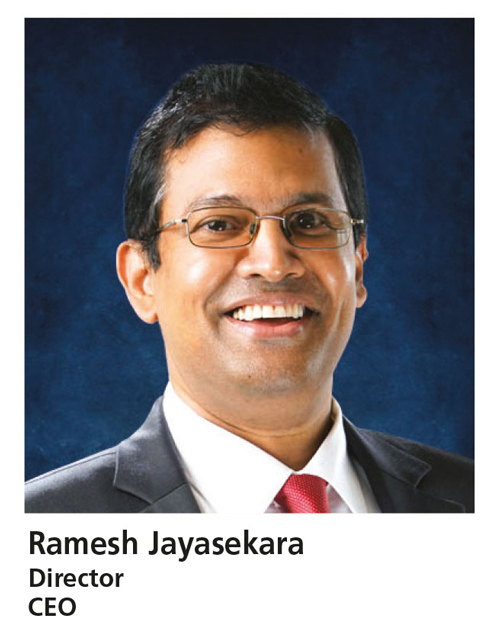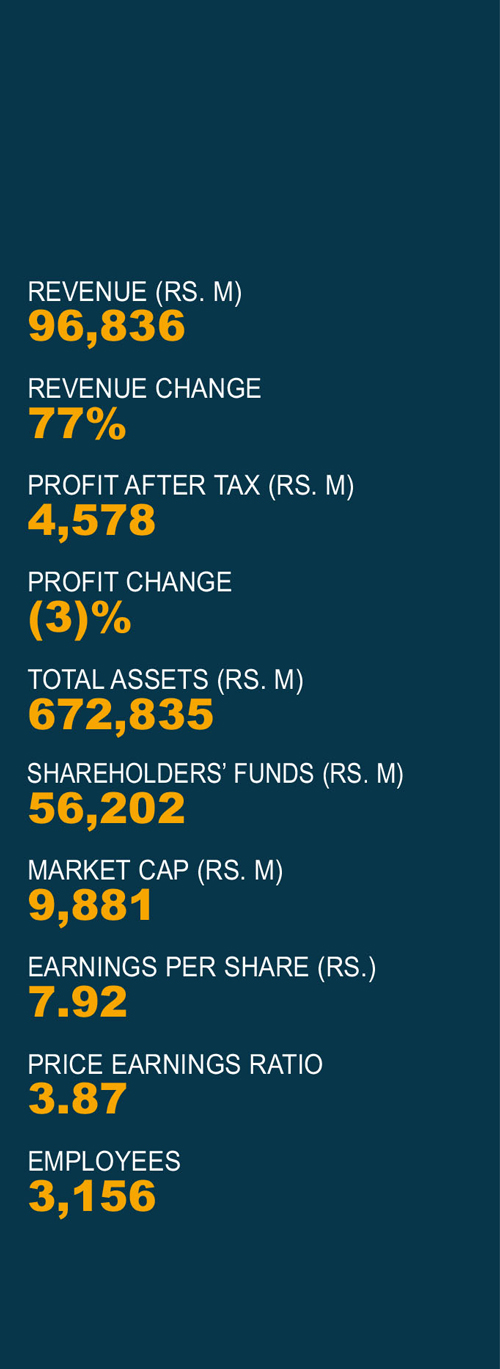LMD 100 Q&A

Q: How has the bank posted growth amidst challenging economic times?
A: Seylan Bank experienced a favourable year, performing well despite economic challenges. Our focus this year centred on preserving our net interest margins (NIM) and enhancing digitalisation efforts. We aggressively expanded digital penetration rates and activities on digital channels.
These measures, combined with a prudent focus on fee income, contributed to a better performance this year.
Notably, the country’s inflation was maintained at a low level. Despite GDP contracting by about three percent and credit growth diminishing as a result, we foresee an improvement in the economy in the first two quarters of 2024 with interest rates reducing.

Q: What is your assessment of Sri Lanka’s economic trajectory?
A: We anticipate a significant improvement in the next couple of years. Projections for the following year indicate growth in GDP of between one and two percent. We anticipate the economic situation will turn around and look better next year.
We believe the worst is behind us and the economy will recover over the course of the next few years. Our strategies align with this projection – with projected growth through expansion in our bottom line.
Q: How is your company navigating the macroeconomic landscape?
A: Across the banking sector, a concern lies with high non-performing loans. This saw a reduction since the first half of 2023 however, peaking in the middle of the year and starting to decline thereafter.

Q: What is your outlook for the Sri Lankan Rupee against the US Dollar in 2024?
A: With the completion of the IMF second tranche and the first review, we expect additional funding coming into the country from the Asian Development Bank (ADB) and World Bank, contributing a total of US$ 1 billion in inflows. This is expected to boost our country’s reserves to around 4.5 billion dollars by the end of the year.
It’s possible the rupee may experience a depreciation to approximately Rs. 350 to the US Dollar by December 2024, compared to its current position, which is about a six to seven percent depreciation.
Q: What is your assessment of the country’s risk profile?
A: It is crucial to maintain a consistent economic policy. With our current involvement in the IMF programme, it is imperative to adhere to and stay on course within its framework.
This marks the 17th time the country has entered into the IMF programme. Therefore, emphasis should be on staying the course and making necessary economic reforms in the country.
The past two years have been tough, and a relapse at this point would be hard and painful for Sri Lanka. The economy must be protected and it is crucial that we continue our course despite elections in the latter part of 2024.

Q: What are the burning issues facing the country in 2024?
A: The overarching principle for Sri Lanka should be maintaining a consistent economic policy, irrespective of the political leadership.
If the decision is to align with IMF guidelines, it is imperative to stay on course and meet targets related to reserve requirements, and income to GDP and related debt ratios.
The key is fostering a collective agreement on the way forward, transcending political affiliations. The success of a country hinges on this collaborative approach rather than each party in power making changes. Ultimately, the focus should be on establishing stability and consistency in economic policy.
Q: To what extent are AI-based technological advancements impacting the sector?
A: It plays a pivotal role in banking, particularly in predicting future default scenarios. By leveraging artificial intelligence, we should be able to foresee potential customer defaults well in advance.
AI is heavily used in upselling and cross selling strategies. We can precisely identify customers who are likely to be receptive to specific products, reducing the need for advertising to a general audience, facilitating more targeted and meaningful engagement with relevant audiences.
The predictive capabilities of artificial intelligence extend to understanding customers’ behaviour based on their online presence and help to anticipate purchasing patterns. Seylan Bank has set up a data analytics team and is in the process of developing AI driven solutions to assist the bank’s growth.
Telephone 2456771 | Email: ramesh@seylan.lk | Website: www.seylan.lk





